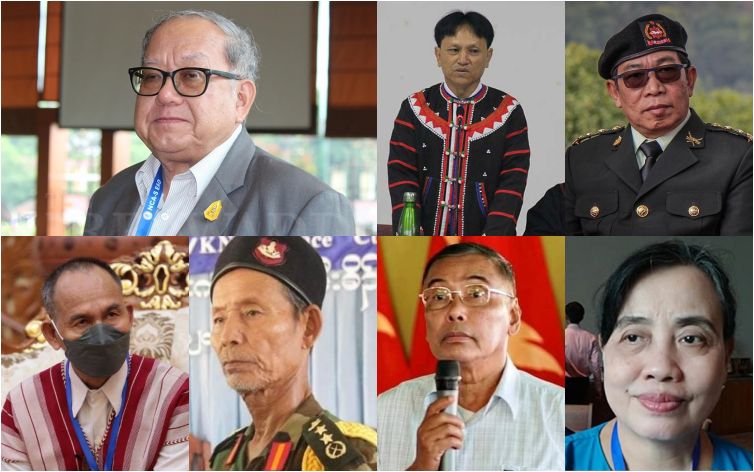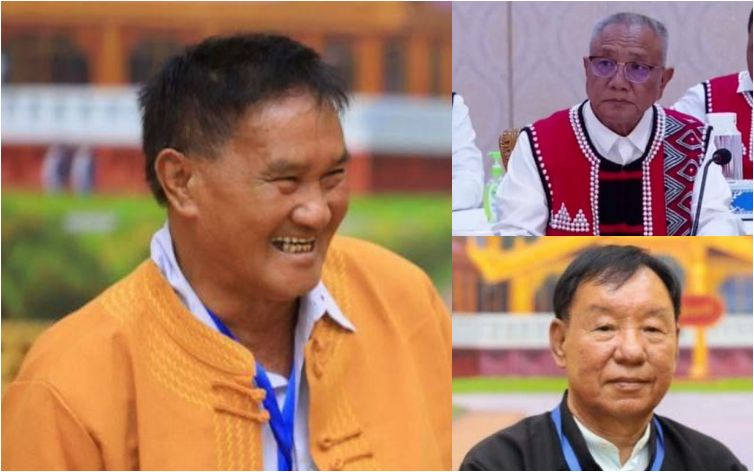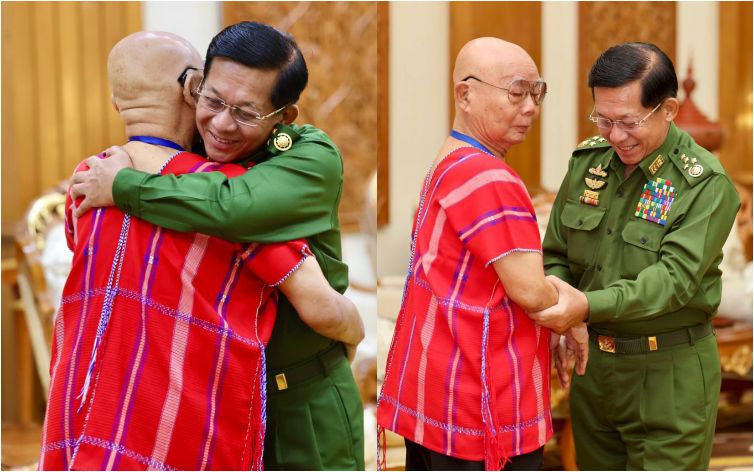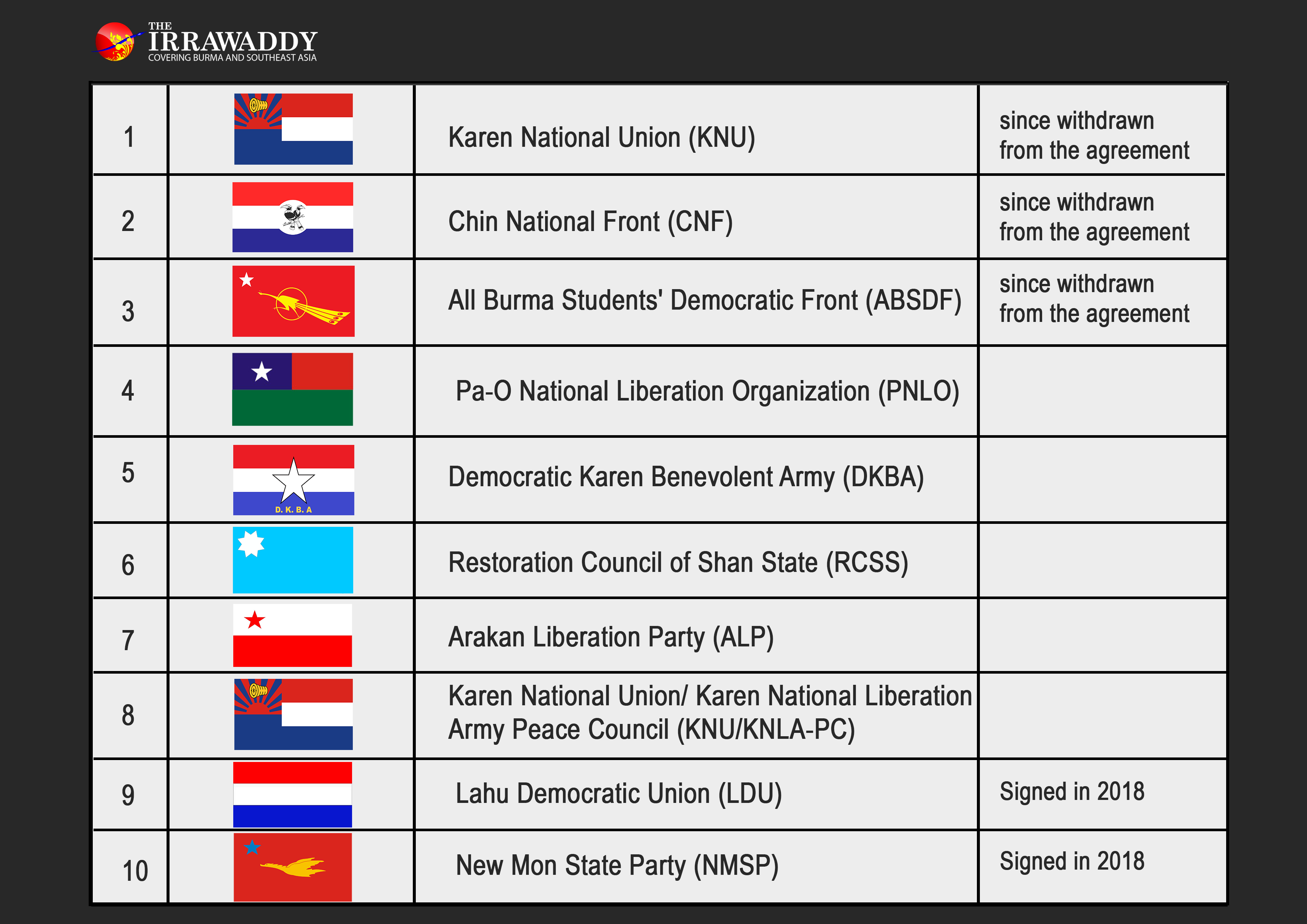Coup leader Min Aung Hlaing is planning to celebrate the eighth anniversary of the signing of the Nationwide Ceasefire Agreement (NCA) in Naypyitaw on Sunday, even though some of the signatories have been fighting the Myanmar military since the 2021 coup, saying the accord is no longer valid.
To his embarrassment, three signatories—the Karen National Union, Chin National Front and All Burma Students’ Democratic Front—said on Thursday that any attempt by the regime to base the peace process on the NCA would just “deepen the country’s crisis and prolong armed conflict” as the military takeover violated the peace agreement’s principles and aims.
What is the NCA and who signed it?
The NCA was signed on Oct. 15, 2015 between the Myanmar military, the nominally civilian government of President Thein Sein and eight ethnic armed organizations (EAOs). They are:
Quitting the NCA
Since the 2021 takeover, the KNU, CNF and ABSDF have denounced the coup and resumed fighting the military, saying the NCA was rendered void by the putsch.
They have been joined in fighting the regime by non-signatories including the Kachin Independence Army (KIA) and the Karenni National Progressive Party (KNPP). All are not only fighting against the regime, but also arming and providing military training for anti-regime forces known as People’s Defense Forces.

Who is still engaging with the regime’s peace talks?
Faced with growing pressure and diplomatic isolation, Min Aung Hlaing invited EAOs, including non-signatories, to peace talks in April 2022 in an attempt to revive the NCA.

The KNU, CNF and ABSDF rejected the invitation, saying the talks were not genuine efforts at seeking peace.
The remaining signatories joined the talks.
Three NCA non-signatories—the United Wa State Army (UWSA), National Democratic Alliance Army (NDAA) and Shan State Progress Party (SSPP)—also joined the talks.

Despite the KNU’s rejection of the NCA, former KNU chairman Saw Mutu Say Poe, who led the KNU when it signed the NCA in 2015, recently met with Min Aung Hlaing in Naypyitaw for what the regime described as peace talks.
The KNU has distanced itself from the meeting and reaffirmed its commitment to Myanmar’s revolution.
Observers said those EAOs that have agreed to participate in peace talks with the regime all have their own reasons for doing so. Most need to avoid conflict with the Myanmar military either to protect or promote their interests, while a few are small in size and poorly armed.
RCSS leader Yawd Serk even said the PDFs would become armed robbers if not properly controlled by the NUG.
Min Aung Hlaing has conferred honorary Wunna Kyawhtin titles on the leaders of the seven NCA signatories that are still engaging in peace talks with his regime. Some were conferred posthumously.


















